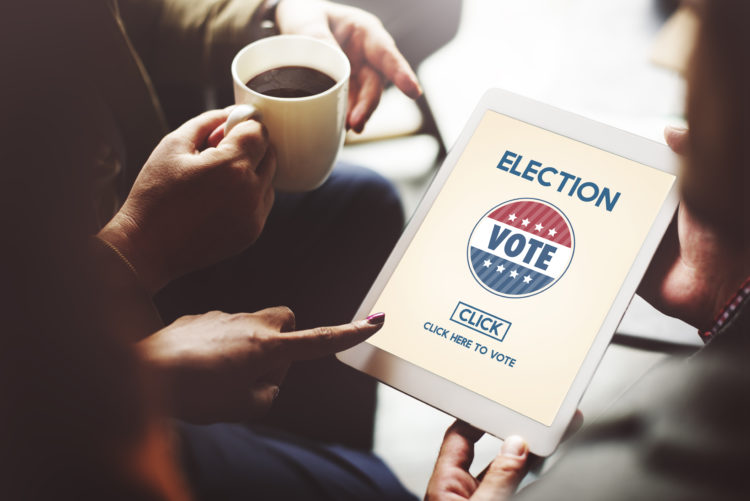
Photo Credit: shutterstock
The upcoming TikTok ban is going to have tremendous repercussions for what types of political content is available online, as well as how young social media users will consume it. When you combine the TikTok ban with algorithm changes from top social media platforms to “downrank” political content, there’s a very good chance that we might be on the cusp of silencing an entire generation. In short, Gen Z might be losing their political voice on social media.
Impact of TikTok ban
That might sound like a hyperbolic statement, but consider the fact that one-third of U.S. adults age 18-to-29 regularly get their news from TikTok. Instead of watching the news on TV, the way people did in past generations, they are getting their news via viral social media platforms like TikTok. So if you take away TikTok, it’s the equivalent of taking away the TV from previous generations.
There could be two direct impacts here. The first impact, of course, will be on creators. Every creator who has spent time developing a brand and a following on TikTok will need to look to other social media platforms for engagement. That might not be disastrous, given that most creators regularly post content on several platforms, but it will still have an impact.
The secondary impact will be on all the people who use TikTok as their primary news source. Some of them might migrate over to YouTube or Instagram, but it’s uncertain at best what happens next. Are people really going to choose to watch long-form video content on YouTube, especially when it comes to politics?
Impact of algorithm changes
Also, every social media platform these days seems to be in the midst of an algorithm change to downrank political content. Some platforms are doing this for business reasons – it’s a lot harder to attract advertisers and sponsors when there’s a lot of potentially polarizing political content on your platform. And some claim to be doing it to save users from misinformation and disinformation.
What is certain here is that political content is going to be significantly downplayed during the current election cycle. No social media platform wants to be blamed for tilting the election in favor of either the Democrats or the Republicans. Just think back to 2016, and how Facebook came under tremendous pressure for allowing “Russian bots” to tip the election in Donald Trump’s favor. Facebook now has to jump through all kinds of hoops, showing that it is doing everything possible to remove misinformation and disinformation from its platform.
How will Gen Z regain their political voice?
The good news, if you want to call it that, is that there is still time to figure things out. The official TikTok ban may not happen for another nine months, and certainly will not happen before the current presidential election. So that leaves open the door for politicians to reverse the ban sometime in 2025. At the very least, it gives ByteDance, the Chinese company that owns TikTok, more time to find a potential buyer in the United States.
Algorithm changes can be reversed as well. It should just be a matter of changing a few lines of code, right? It almost seems like there needs to be a national discussion of what types of content and behavior these algorithms should incentivize. Right now, the emphasis is on clicks and engagement, and that leads to outrageous, polarizing content and lots of misinformation.
What if the emphasis were on something else with greater value to society than just clicks and links? That might lead to a wise, informed population willing to fix the current situation and return things to the way they used to be. If that’s the case, it will likely be members of Generation Z leading the way.